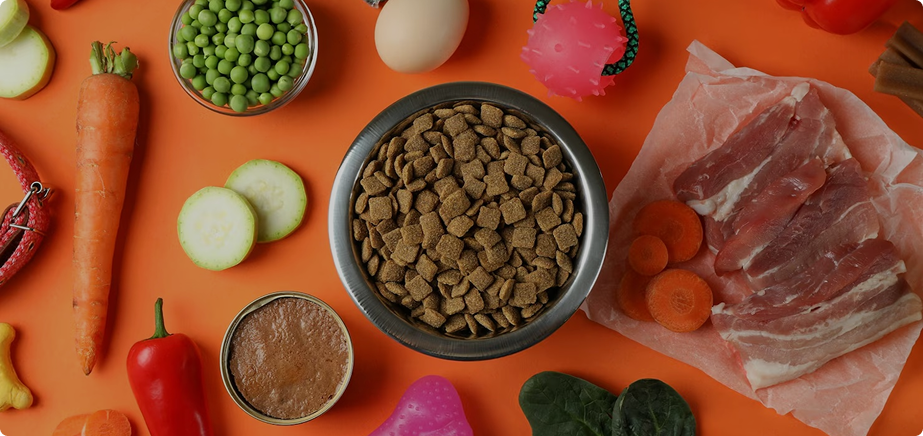
The Ultimate Guide to Pet Nutrition: What Every Dog Parent Should Know
Every pet parent wants a long, healthy, and happy life for their furry companion. While exercise, love, and playtime are essential, nutrition is the foundation of dog wellness.
The right diet fuels your dog’s body, strengthens immunity, sharpens the mind, and supports better behavior. In this guide, we’ll explore building blocks of a balanced dog diet, common mistakes to avoid, and tips for smarter nutrition choices.
Why Pet Nutrition Matters
Just like humans, dogs need a complete and balanced diet to thrive. Poor nutrition can lead to:
- Dull coat and dry skin
- Low energy or fatigue
- Weight problems and obesity
- Long-term health issues (diabetes, arthritis)
Proper nutrition, on the other hand, can:
- Boost energy and vitality
- Support a shiny coat and healthy skin
- Strengthen immunity
- Improve digestion
- Promote joint and heart health
Think of food as preventive medicine, every bite impacts your dog’s health.
The Building Blocks of a Healthy Dog Diet
1. Protein: The Foundation
Dogs are natural carnivores, so high-quality protein is essential for muscle strength, energy, and tissue repair.
- Best sources: chicken, turkey, beef, lamb, fish, eggs
- Avoid: “meat by-products” or fillers with low nutritional value
2. Healthy Fats: Fuel & Shine
Fats provide energy and help dogs absorb fat-soluble vitamins (A, D, E, K). Omega-3 and Omega-6 fatty acids are particularly important for skin, coat, and brain function.
- Best sources: salmon oil, flaxseed oil, chicken fat
- Signs of deficiency: itchy skin, dull coat, excessive shedding
Shop Pawsito Omega-3 Salmon Oil → for healthy skin, joints, and brain support
3. Carbohydrates: Energy & Fiber
While it is not essential for survival, complex carbs provide energy and fiber for better digestion.
- Good options: sweet potatoes, oats, brown rice, pumpkin
- Avoid: excessive fillers like corn, wheat, soy
4. Vitamins & Minerals: The Small but Mighty Nutrients
- Calcium & phosphorus: strong bones and teeth
- Vitamin A: vision and immunity
- Vitamin E: skin health and antioxidant protection
- Zinc: wound healing and coat health
Since processed foods can lose nutrients, supplements sometimes help fill gaps.
Common Pet Nutrition Mistakes to Avoid
- Overfeeding: Leading cause of obesity — measure portions carefully
- Too many treats: Treats should be <10% of daily calories
- Relying on table scraps: Many human foods are toxic (onions, grapes, chocolate)
- Ignoring labels: Not all dog foods are created with same ingredients
Wet Food vs. Dry Food vs. Raw Diets
- Dry kibble: Convenient, affordable, helps clean teeth; quality varies
- Wet food: Higher moisture, good for picky eaters
- Raw diets: Growing in popularity, but handle carefully to avoid bacteria
Tip: Some pet parents mix wet and dry for balance. Always consult your vet before switching diets.
When Supplements Can Help
Even the best diet may fall short. Supplements can support overall health:
- Omega-3 oils: Joint, skin, and coat health
- Probiotics: Digestion and gut balance
- Multivitamins: Fill minor nutrient gaps
Note: Supplements complement a healthy diet; they are not replacements.
Pet nutrition isn’t one-size-fits-all. Each dog has unique needs based on age, breed, and lifestyle. Staying informed, reading labels, and working with your vet ensures your dog thrives.
Remember: A healthy paw is a happy paw—and good nutrition is where it all begins.









